Let me begin by saying…
These are the people,
this is the moment,
here.we.are.
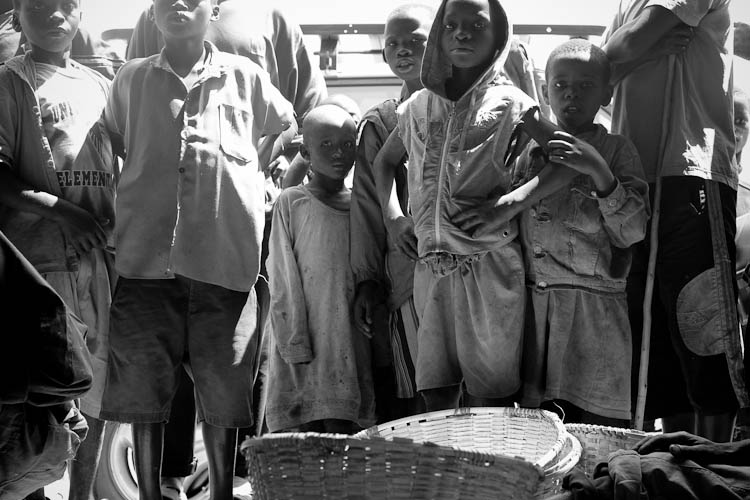
I have been feeling as if I owe you, big time. I feel like I owe you lots of images like this one. Images that allow you to see for yourself what the families who grow coffee in Burundi look like.
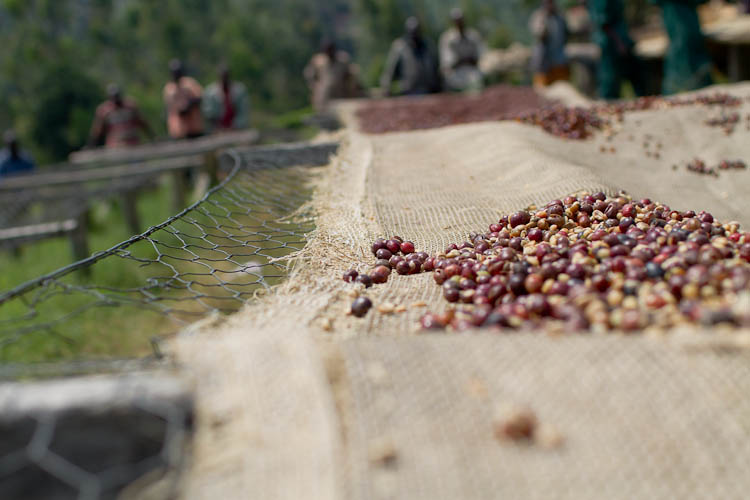
Here’s your coffee, freshly picked and still in the cherry. This coffee is honey processed, which means it is picked, left unwashed to preserve every bit of flavor, and then sun dried on these tables.
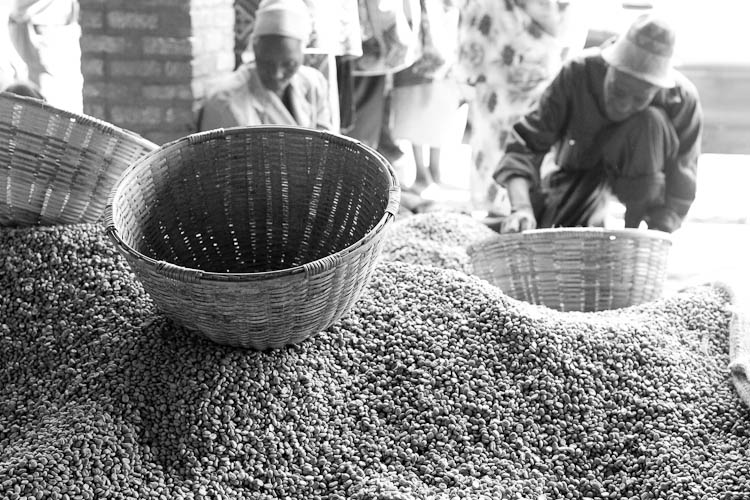
Here specialty coffee is being hand sorted. Which means it is being picked through to remove any defects. This coffee will be hand sorted five times. When picked, before being washed, after being fermented, after drying, and after dry milling (which removes the parchment).
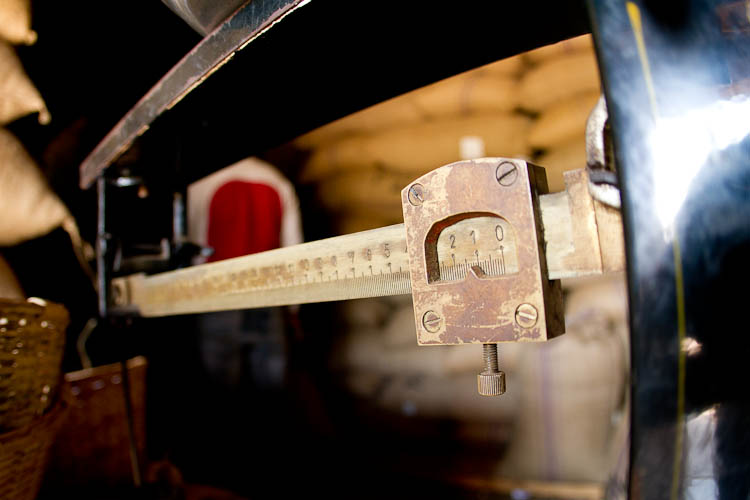
This scale is where a farmer’s lot is determined. Their ripe red cherries are weighed and a price is determined. The price for red cherries? About $.50 a kilo, or $.50 for 2.2 pounds. How can we get the farmers more money? If Ben finds during cupping that the quality of a certian lot is superior enough to be sold as speciality coffee, the farmer who grew it will get a bonus at the end of the season of double or triple per kilo and the coffee will be sold to the likes of Stumptown and Bean There.
What if Ben wasn’t cupping to find these lots? More and more of the coffee would be sold as commodity lots to big coffee exporters who would turn around and sell it to the likes of Folgers and Maxwell House. They would then mix it with other commodity coffees and the people who drink it would never even know that they were drinking a Burundi coffee, or that the farmer only got $.50 a kilo.
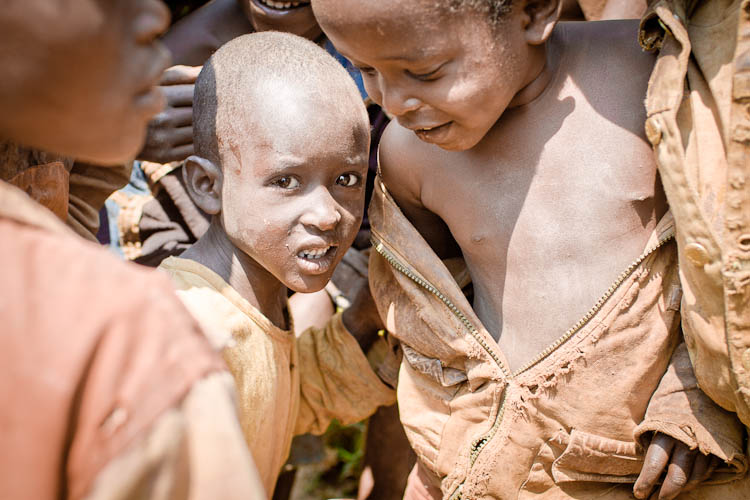
Of course, the kids are the heart breaking part. Without education, electricity, running water and proper nutrition what hope of a better life than their parent’s can they have?
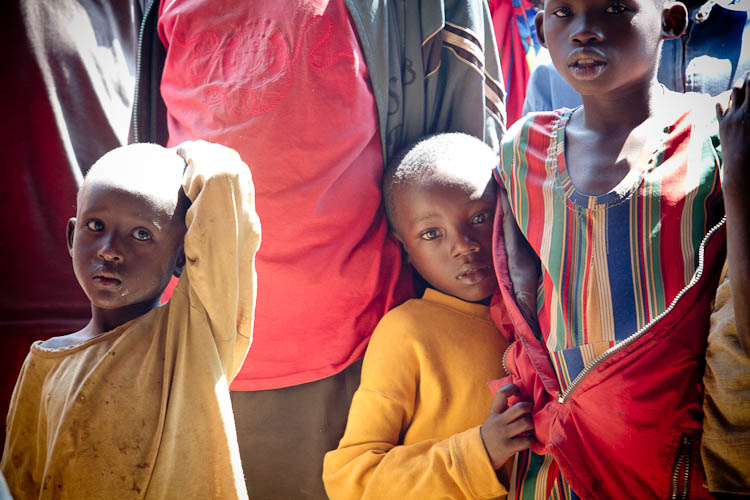
If their parents get more for their crop that is a good start to a better life, if the extra funds are managed correctly. But, as we all know, money does not solve everything.
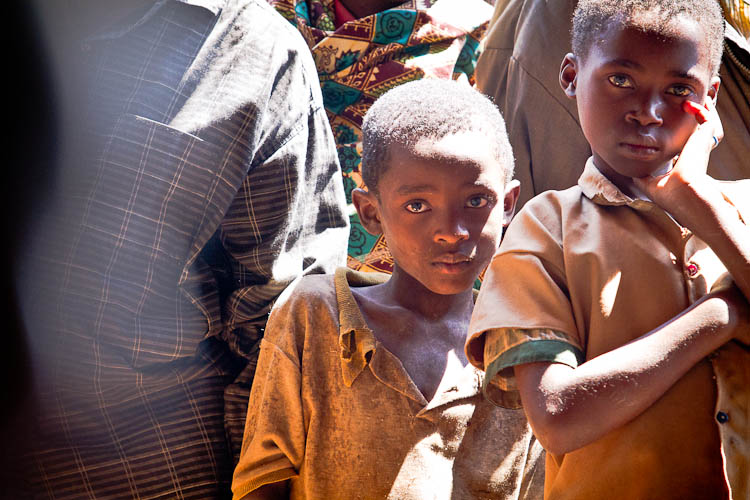
All that said, I have to tell you… the coffee hills are not a hopeless place. In fact, they are just the opposite. They seem filled with hope. The hope of the harvest and the strength that community living can bring.
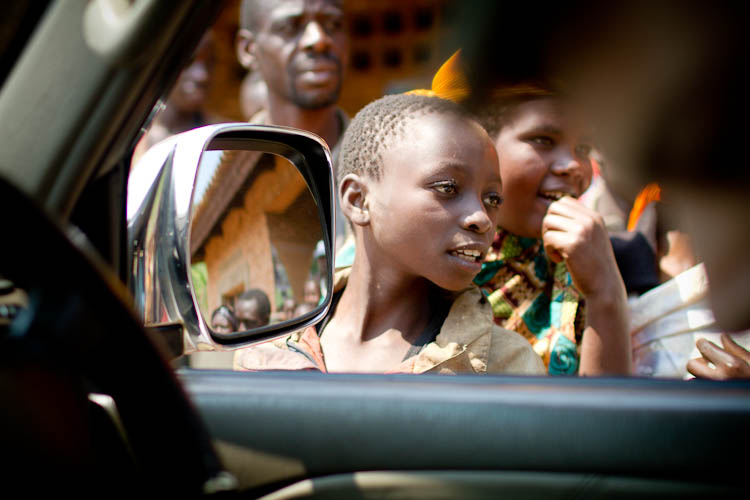
Being in the hills is an amazing experience. As an mzungu (white person) it is not easy to blend and we do become the village entertainment, but I suppose it’s the least we can do!
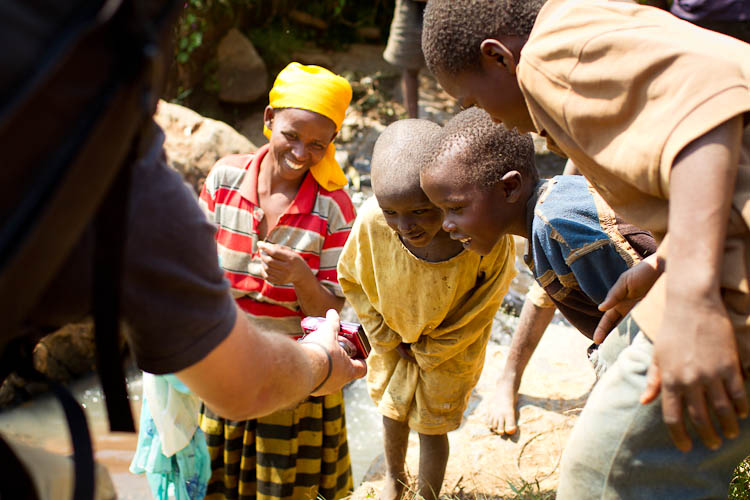
I love this moment, this little kiddo in the oversized t-shirt was so scared of the white people and of our cameras, but once our good friend Wesley from Cooked In Africa Films showed him his picture he was all smiles. I do love film, but God bless digital!
The hills reminded my why we made this leap and what it is all for…
These are the people,
this is the moment,
here.we.are.
That’s all for now,
Kristy


How is that only the price of coffee? So much coffee is consumed and we pay so much for it…even Folgers, I feel like.
Thanks…your photos continue to bring joy to my heart…..they show such a pure quality…amazing. Love you guys!
Thank you for moving to Burundi. The coffee from Burundi is some of the world’s best, but there are too few advocates for Burundi. Bring on the Burundi coffee!
Mzungu! They speak Swahili in the hills?! Reading that word sent me straight to Kenya being chased by the perfect little kiddos there!
You guys are doing amazing things! Keep the pics coming!!
Love and miss you all!
Thank you all! We need your encouragement. Really, we do! And Abs, I think Mzungu is universally the African word for white person, not sure if it’s everywhere, but everywhere we’ve been. They speak Kirundi here.